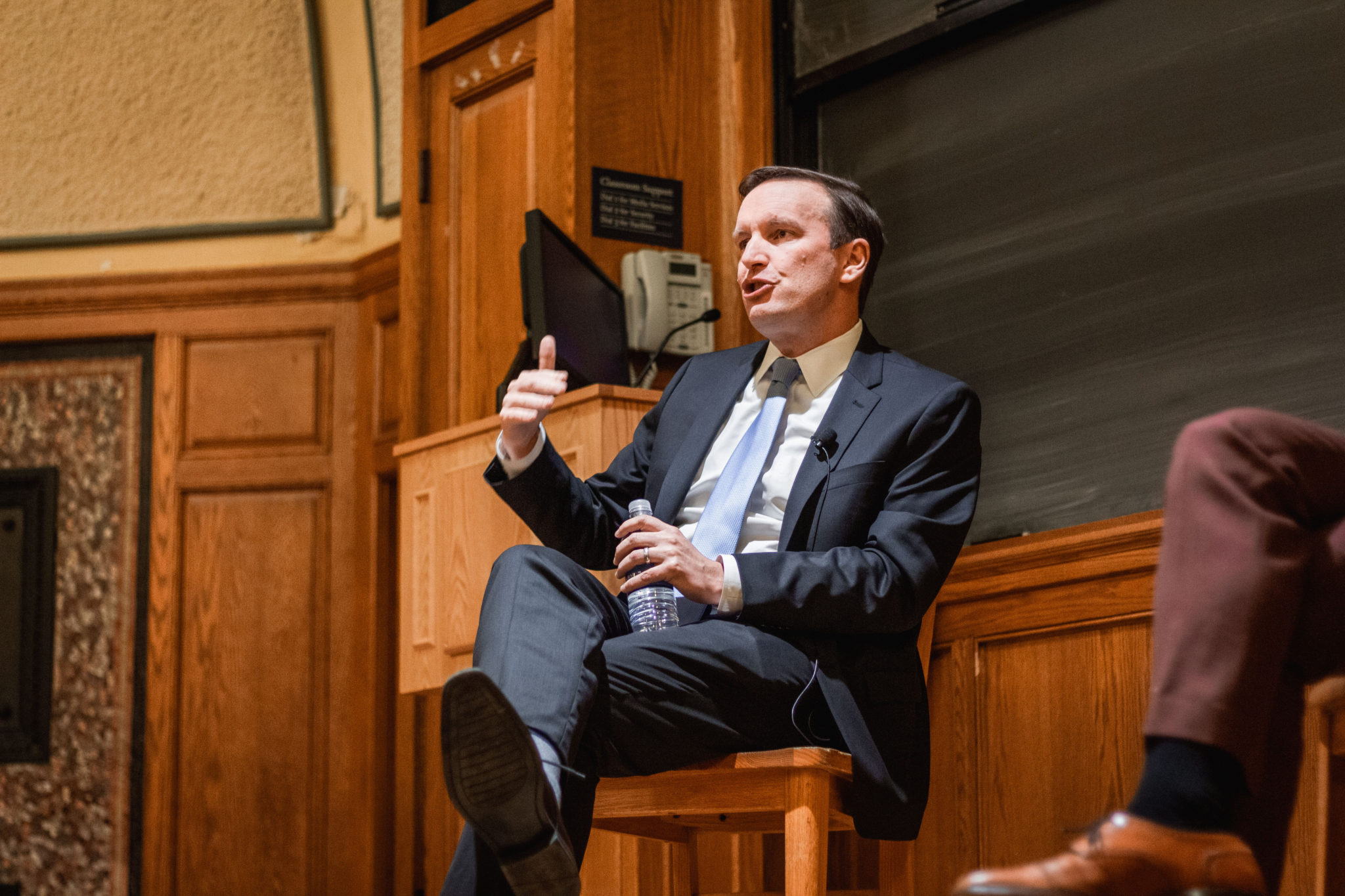
With extreme weather and coastal flooding threatening Connecticut residents, the state’s U.S. senators have embraced the Green New Deal.
Inspired by the New Deal initiatives that President Franklin D. Roosevelt created to pull the United States out of the Great Depression in the 1930s, the Green New Deal is a set of programs meant to bolster the economy while promoting environmental sustainability. The four main pillars of the program are an economic “bill of rights,” a transition to renewable energy sources and green businesses, financial reforms to limit the power of Wall Street firms and a voter bill of rights, according to the Green Party. Originally promoted by Green Party presidential candidate Jill Stein during the 2012 election, the set of programs has been taken up since the 2018 midterms by an emerging wing of the Democratic Party led by Rep. Alexandria Ocasio-Cortes, D-N.Y., and Sen. Edward Markey, D-Mass.
“Climate change is an existential crisis,” said Sen. Richard Blumenthal, D-Conn., in a statement Feb. 9. “This resolution affirms our commitment to developing a long overdue, comprehensive plan to tackle the devastating effects of climate change, create thousands of high-paying jobs in the renewable energy sector, and address the disparities in communities disproportionately affected by pollution.”
The bill was introduced in both the House of the Representatives and the Senate on Feb. 7. The bill has 11 co-sponsors in the Senate, including both Blumenthal and Sen. Chris Murphy, D-Conn., as well as Bernie Sanders, I-Vt.; Kirsten Gillibrand, D-N.Y.; Kamala Harris, D-Calif., Elizabeth Warren, D-Mass.; Cory Booker, D-N.J.; and Amy Klobuchar, D-Minn.
Harris, Warren, Booker and Klobuchar have all announced their candidacies in the 2020 presidential election. Gillibrand and Sanders are considered likely candidates as well.
According to an email from Murphy press secretary Laura Maloney, the “Green New Deal Resolution” lays out a 10-year national mobilization in order to build resiliency against climate change-related disasters, repair infrastructure, meet 100 percent of power demand with renewable sources and make the United States the international leader on climate change.
Both Republicans and moderate Democrats have expressed skepticism about the feasibility of the program.
“After the success of the Fyre Festival, we bring you the Green New Deal,” tweeted Rep. Mark Walker, R-NC, along with a parody video comparing the legislation to the infamous failed “luxury music festival” in 2017.
Moderate Democrats have also expressed doubts. House Speaker Nancy Pelosi, D-N.Y., called the program a “green dream.”
Still, the program has broad bipartisan support nationwide, according to a survey conducted by the Yale Program on Climate Change Communication. The survey results indicated that 81 percent of registered voters “strongly support” or “somewhat support” the program, including 92 percent of Democrats and 64 percent of Republicans. Progressive Democrats have also defended the program’s feasibility.
“I think it’s absolutely realistic, and I frankly think we need to set our sights high,” Murphy said in an interview on CNN on Feb. 10, comparing the Green New Deal to former President John F. Kennedy’s goal to put a man on the moon in the 1960s. “If we don’t command this country to think big about saving our nation and our world from destruction, then I don’t think we’re going to get close to meeting the mark.”
However, many Americans are not aware of the legislation. Of the registered voters surveyed, only 3 percent said they knew “a lot” about the Green New Deal, compared to 14 percent who said they knew “a little” and 82 percent who said they knew “nothing at all.”
According to a U.S. Environmental Protection Agency report from 2016, Connecticut’s temperature has risen by 2 or 3 degrees Fahrenheit in the past century, leading to changing precipitation patterns, sea level rises, wetland loss and increased reports of respiratory conditions such as asthma.
The original New Deal was enacted between 1933 and 1936.
Nathalie Bussemaker | nathalie.bussemaker@yale.edu







